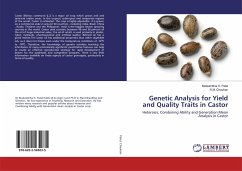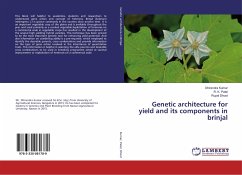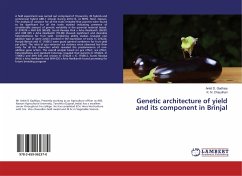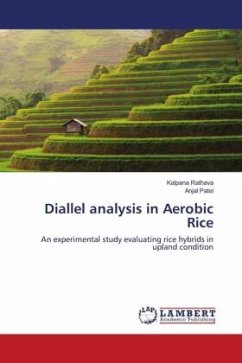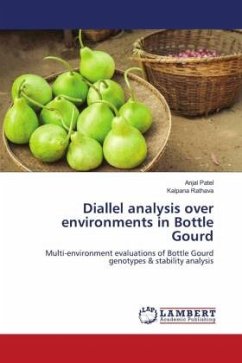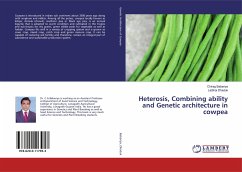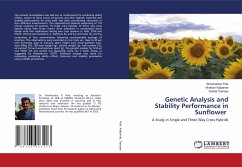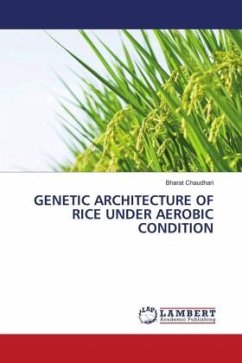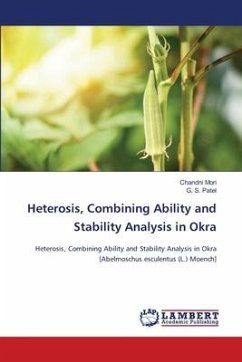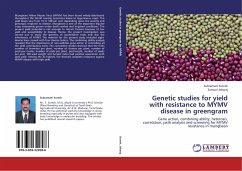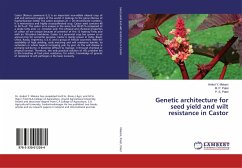
Genetic architecture for seed yield and wilt resistance in Castor
Versandkostenfrei!
Versandfertig in 6-10 Tagen
53,99 €
inkl. MwSt.

PAYBACK Punkte
27 °P sammeln!
Castor [Ricinus communis (L.)] is an important non-edible oilseed crop of arid and semi-arid regions of the world. It belongs to the genus Ricinus of Euphorbiaceae family. The castor possesses 2n = 20 chromosome numbers. It is monoecious and highly cross-pollinated crop. Castor seed contains 48 to 56 % oil. The castor oil is unique in the sense that 85-95 % composed of a single fatty acid, i.e. ricinoleic acid. The physical and chemical properties of castor oil are unique because of presence of this 12 hydroxy fatty acid with an 18-carbon backbone. Castor is a perennial crop but grown as an an...
Castor [Ricinus communis (L.)] is an important non-edible oilseed crop of arid and semi-arid regions of the world. It belongs to the genus Ricinus of Euphorbiaceae family. The castor possesses 2n = 20 chromosome numbers. It is monoecious and highly cross-pollinated crop. Castor seed contains 48 to 56 % oil. The castor oil is unique in the sense that 85-95 % composed of a single fatty acid, i.e. ricinoleic acid. The physical and chemical properties of castor oil are unique because of presence of this 12 hydroxy fatty acid with an 18-carbon backbone. Castor is a perennial crop but grown as an annual crop for economic purpose. Castor is mainly grown in India, Brazil, China, Russia, Argentina, U.S.A. and a group of African countries. With the availability of high yielding, early maturing and wilt resistance hybrids, its cultivation in whole Gujarat increasing year by year. As the wilt disease is primarily soil-borne, it becomes difficult to manage. it through chemical or physical control. Therefore, the only practical solution of this problem lies in the breeding of host plant resistance, for which, knowledge of genetic of resistance to wilt pathogen is the basic necessity.



